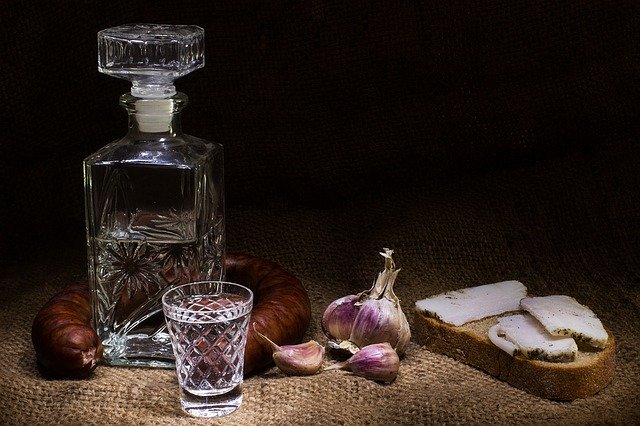Vodka is one of the most popular alcohols in the world. Its preparation according to tradition can be time-consuming, not everyone knows how to do it! What is vodka made of?
What is vodka?
In a broader sense spirits are defined as alcoholic beverages obtained on the basis of distilled alcohol obtained from processing of agricultural products.
Vodka production stages generally include raw material purification, evaporation to liquefy the starch contained in the raw materials, mashing, i.e. the breakdown of starch into sugars, fermentation of sugars carried out by yeast, distillation, rectification, mixing of the resulting spirit with water, filtration and bottling.
What is vodka made of?
Vodka is a drink in the form of alcohol distillate, in which rectified spirit is diluted with water. The traditional variety contains 40% pure alcohol – and the regulations require that a drink known as vodka has a minimum of 37,5% alcohol. It is produced in several stages – and its production uses cereals or potatoes (although outside the countries of the so-called vodka belt we often find liquor made from corn, fruit or vegetables).

Spirit – stronger brother of vodka
The strongest food spirit that can be obtained is about 96%. Above this concentration, the vapor pressure of water and alcohol is almost identical and distillation becomes useless. Spirits in different countries have different concentrations.
How is vodka produced?
In the case of Vodka, the starting point for its production can be potatoes or five cereals: rye, wheat, triticale, barley and oats.
An important stage is evaporation. To be able to produce with alcohol, you must first make the starch contained in your products break down into fermentable sugars. For this purpose, the selected raw material is subjected to evaporation, i.e. heating the raw material in an aqueous environment to a high temperature (not less than 150 degrees). During evaporation, the starch is transformed into a soluble form that allows good contact with also soluble enzymes. In this process, the polysaccharide is broken down into fermentable monosaccharides and disaccharides. The mashing process then takes place.
Fermentation process
Distillery yeast is added to the sweet mash, which causes the fermentation of sugars. The fermentation process lasts 72 hours and requires a cooling process in the turbulent phase. The main fermentation products are ethyl alcohol and carbon dioxide. Fermentation takes place in fermentation vats.
Then there is a distillation process, which is perfect for school chemistry, rectification followed by alcohol-water treatment. The final stage is vodka filtration – the vodka can be filtered through various minerals, charcoal or cellulose filters that least interfere with organoleptic properties. The type of filter is decided by the manufacturer. The filtered alcohol goes into bottles and after many stages of legal acceptance, finally lands on store shelves and our tables.












